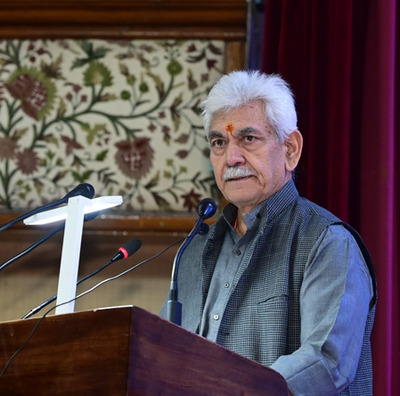WhatsApp Rolls Out Passkey Encryption: Lock Your Chat Backups with Fingerprint or Face ID
In a major move to enhance user privacy, WhatsApp has introduced a new update that lets users lock their chat backups using fingerprint, Face ID, or their device passcode. This marks a shift towards a more secure and seamless backup experience, eliminating the need to remember complex passwords or lengthy encryption keys.
WhatsApp’s New Privacy Update : What’s Changing
With this new WhatsApp update, users can now protect their chat backups stored on Google Drive or iCloud through their phone’s built-in authentication method. Until now, securing backups required setting a separate password or handling a 64-digit encryption key - an often cumbersome process for many users.
Now, a single tap or glance using biometric authentication is all it takes to encrypt or restore chat histories. This integration ensures that end-to-end encryption remains intact even if your device is lost, stolen, or replaced.
The update is rolling out gradually across regions. Users can enable it by navigating to:
Settings > Chats > Chat Backup > End-to-End Encrypted Backup.
Simplifying Security with Passkey-Based Encryption
WhatsApp has long been known for its end-to-end encryption, ensuring that only the sender and recipient can view messages. Each chat is protected with a unique digital key that even Meta or WhatsApp cannot access.
With passkey-based encryption, the platform is simplifying this process while maintaining the same high level of security. Users no longer need to store or recall lengthy encryption keys—making data protection both stronger and simpler.
This update ensures that years of messages, photos, and voice notes remain fully secure without the hassle of managing passwords.
How Business Chats Are Protected
WhatsApp’s business messages are also encrypted using the Signal encryption protocol, safeguarding them before they leave a user’s device. However, once a message reaches a business account, its handling depends on that business’s privacy policy.
Some businesses may share this data with employees or external partners, and certain interactions could be used for Meta’s advertising services. Users are encouraged to review the privacy terms of any business they chat with to understand how their information is managed.
Why This Update Matters
This update is a game-changer for WhatsApp users concerned about privacy and data security. By tying encryption directly to a phone’s fingerprint or Face ID , WhatsApp has made backup protection effortless and reliable.
It’s a step toward a privacy-first future, where robust security doesn’t come at the expense of user convenience. With seamless authentication, end-to-end protection, and no need for complicated passwords, WhatsApp continues to set the benchmark for secure messaging worldwide.

WhatsApp’s New Privacy Update : What’s Changing
With this new WhatsApp update, users can now protect their chat backups stored on Google Drive or iCloud through their phone’s built-in authentication method. Until now, securing backups required setting a separate password or handling a 64-digit encryption key - an often cumbersome process for many users.
Now, a single tap or glance using biometric authentication is all it takes to encrypt or restore chat histories. This integration ensures that end-to-end encryption remains intact even if your device is lost, stolen, or replaced.
The update is rolling out gradually across regions. Users can enable it by navigating to:
Settings > Chats > Chat Backup > End-to-End Encrypted Backup.
You may also like
- 'Look for the rebirth of Mao Zedong': Tibetan leader mocks China's control over Dalai Lama reincarnation; rejects Beijing's 'golden urn' claim
- CCPA imposes penalty of Rs 8,00,000 each on two IAS coaching institutes for misleading advertisements, unfair trade practices
- Mira Rajput wishes 'BIL' Ishaan Khatter on his “30th-ish” birthday
- Bengaluru techie's one irrational decision turned his business into a global brand in six years. 'Everyone thought I had lost it'
 Journey of knowledge & peace must never stop: J&K L-G Sinha
Journey of knowledge & peace must never stop: J&K L-G Sinha
Simplifying Security with Passkey-Based Encryption
WhatsApp has long been known for its end-to-end encryption, ensuring that only the sender and recipient can view messages. Each chat is protected with a unique digital key that even Meta or WhatsApp cannot access.
With passkey-based encryption, the platform is simplifying this process while maintaining the same high level of security. Users no longer need to store or recall lengthy encryption keys—making data protection both stronger and simpler.
This update ensures that years of messages, photos, and voice notes remain fully secure without the hassle of managing passwords.
How Business Chats Are Protected
WhatsApp’s business messages are also encrypted using the Signal encryption protocol, safeguarding them before they leave a user’s device. However, once a message reaches a business account, its handling depends on that business’s privacy policy.
Some businesses may share this data with employees or external partners, and certain interactions could be used for Meta’s advertising services. Users are encouraged to review the privacy terms of any business they chat with to understand how their information is managed.
Why This Update Matters
This update is a game-changer for WhatsApp users concerned about privacy and data security. By tying encryption directly to a phone’s fingerprint or Face ID , WhatsApp has made backup protection effortless and reliable.
It’s a step toward a privacy-first future, where robust security doesn’t come at the expense of user convenience. With seamless authentication, end-to-end protection, and no need for complicated passwords, WhatsApp continues to set the benchmark for secure messaging worldwide.









